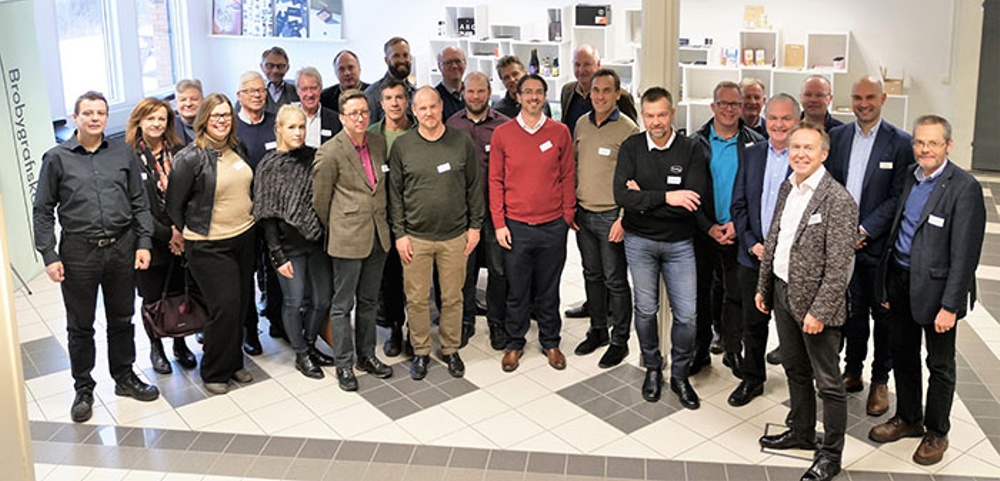Sweden takes the lead on eco-friendly food packaging
 Part of the project team at the kickoff for the fossil free laminates project, FFLAM
Part of the project team at the kickoff for the fossil free laminates project, FFLAMSwedish researchers, packaging manufacturers, printing companies and brand owners are investing in a joint test bed for fossil-free packaging solutions. Why? To make the packaging of tomorrow more environmentally friendly.
Paper Province, a world leading cluster within forest based bioeconomy, has received governmental funding to start a test bed for fossil-free laminates. The test bed is named FFLAM and combines three Swedish pilot plants to a one-stop-development-shop for packaging solutions derived from the forest.
FFLAM will help reduce the use of fossil-based packaging materials, lessen microplastic and carbon dioxide emissions, and increase the use of fiber-based materials. The three-year project is about realizing the test bed, which innovators from all over the world can use to test and refine their innovations. Test beds like FFLAM shorten the time from idea to commercialized product.
Nature-loving packaging
"This project is about bringing together researchers and companies, to find bio-based alternatives to the protective barrier found in food packaging,” explains Peter Edberg, project manager at Paper Province.
The protective barrier that Peter speaks of can be found in packaging for products such as coffee, snacks, milk and juice. The barrier is usually made from fossil-based plastic or aluminum, which is far from optimal from an environmental point of view. Production emits carbon dioxide uses nonrenewable resources. Forest based materials, on the other hand, origin from renewable assets and have potential to be biodegradable and bind carbon dioxide.
Working as one
23 stakeholders are tied to the project, working as one to help new bio-based food packaging come to life. For instance, Holmen Paper, Karlstad University, OptiPack, Rottneros, along with other paper and bioplastic manufacturers, printing companies and food manufactures. One of Sweden’s largest coffee producers Löfbergs is one of them.
“Löfbergs’ current coffee packaging has a barrier mainly made of green polyethylene, which is a plastic made from sugar cane. By participating in the FFLAM project, we want to take another a step forward, towards a future for renewable packaging. We want to minimize the amount of material and ensure that the material we use can be recycled or reused,” says Charlotte Blomqvist, buyer at Löfbergs.
“All project participants have also agreed to join forces to develop a fossil-free package for commercial use before this project ends,” Peter Edberg reveals.
Three locations
The three test environments connected to FLLAM lie in mid Sweden, close to the resource that will make the packaging industry eco-friendlier – the forest. Brobygrafiska in Sunne contributes with expertise and technology for printing and package design. The second location is UMV Coating Systems in Säffle and their pilot plant for barriers and coating. The third party is RISE in Stockholm, which focuses in bioplastic formulations. The facilities can be used separately or combined to test processes, coating solutions, design and printing.
FFLAM is financed by Sweden’s Innovation Agency, Vinnova, and will last until 2021.
Om Paper Province
Paper Province is a world-leading business cluster within the forest bio-economy. We are owned and operated by more than 100 member companies. The cluster is based in Karlstad, Sweden, and mainly operates in the province of Värmland and the surrounding area, but also nationally and globally. Together with our member companies we work towards sustainable development with focus on innovation, skilled work force, internationalization and regional mobilization.